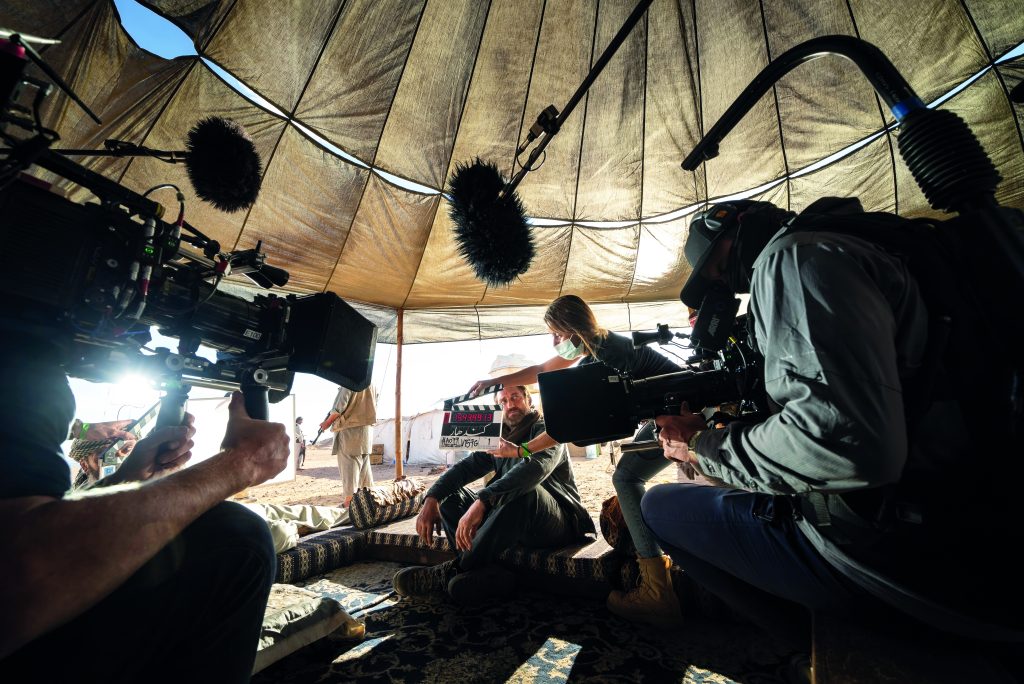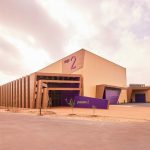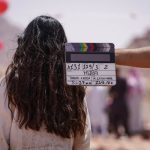In AlUla and across Saudi Arabia, the emerging screen sector is lifted by the ambition and potential of young Saudi nationals.
It was the end of a long day at the office. A young colleague said, “Let’s have a change of scenery.” We got in her car and drove into the hills of AlUla, the Saudi city where we work in film development. Up the steep hills we drove, round and round, traffic whizzing madly by. I looked at her and said, “Are you not frightened?”
“I’m not frightened of anything,” she answered.
This is not the image that the rest of the world might have of a Saudi woman in her 20s. Yet it is the energy, ambition and indeed the fearlessness of the young people of Saudi Arabia that gives me such high hopes for the growth of the Kingdom’s film industry.
Saudi Arabia is a young country – 40.2% of the population is aged 24 or younger, versus for example 31.4% in the US. And their love of movies has driven a rapid growth in cinemas: from a standing start in 2018, the country this year reached 342 screens and over 35,000 seats, with more growth to come.
An image on film is in essence light captured and conveyed within a frame. It is my belief that the emerging Saudi film industry is a frame that can capture and convey the bright light of young Saudis – and, as we compile these frames, tell a new story to the world.

Film AlUla, the film agency of the Royal Commission for AlUla (RCU), serves the RCU vision to regenerate northwest Saudi Arabia as a leading global destination for cultural and natural heritage. Productions that Film AlUla has hosted since our launch in 2020 include the action movie Kandahar starring Gerard Butler, the Russo brothers drama Cherry starring Tom Holland, and Saudi filmmaker Tawfik Alzaidi’s debut feature Norah, with an all-Saudi cast. So far, we have hosted 694 production-days at AlUla. But it is the emerging generation that will sustain the coming transition from the birth of a sector to its maturity.
With that in mind, this year Film AlUla is launching an in-house training programme with a team from the Creative Media Skills Institute. Their experts will be coming to AlUla, and we’ll put out an open call for residents who are interested in learning about a future in film. We’ll answer questions such as: What does it mean to be on set? What does it mean to age a piece of clothing in a war film?
In this way, we hope to train 100 students for work in future productions at AlUla. We are also developing training programmes with the Saudi Film Commission that will be locally accessible and provide on-the-ground experience.
![]() The energy and skill are there; we just need to nurture them. Recently, several residents of AlUla helped with the production of a Saudi film. They were there as extra pairs of hands, just helping out. But they made a positive impression, and now several will be working on the set of Dune: Part Two when it is shot in the region.
The energy and skill are there; we just need to nurture them. Recently, several residents of AlUla helped with the production of a Saudi film. They were there as extra pairs of hands, just helping out. But they made a positive impression, and now several will be working on the set of Dune: Part Two when it is shot in the region.
Internationally, there is a need for talent in this space. The demand is there for our supply.
To promote local talent, Film AlUla signed on as a strategic sponsor of the Red Sea International Film Festival, which was held December 1-10 in Jeddah. We sponsored the Audience Award and the Best Saudi Film Award, each with a prize value of $50,000.
Of course, at the same time as we are developing the human infrastructure, we are building up the physical and economic infrastructure for film to succeed at AlUla. Key elements include designing and building studio spaces, building more than 300 self-contained bungalows for crew, developing local businesses to support the sector’s knock-on needs (e.g., catering), ensuring equipment can be imported and stored without problems, using our local knowledge to do advance scouting for locations, and pressing home the advantages of the Saudi Film Commission’s rebate of up to 40% on costs.
The strategy is off to a strong start. Interest from regional and international producers across the screen sector is growing sharply. And when these producers come to AlUla in growing numbers, they will be impressed not only by the beauty of the land but by the ability of the young people who represent the future of Saudi cinema.
 Charlene Deleon-Jones is Executive Director of Film AlUla.
Charlene Deleon-Jones is Executive Director of Film AlUla.

















































































